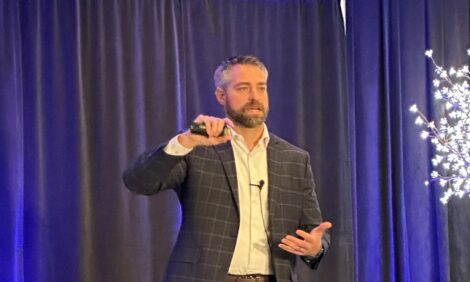



Irish Beef Prices Rise Despite BSE Case
IRELAND - Ireland's recent BSE scare has shown the level of confidence importers have in Ireland's system and has ironically been followed by higher beef prices.In mid-June of this year, a five-year old dairy cow tested positive for Bovine Spongiform Encephalopathy (BSE) in County Louth, Ireland, writes Melanie Epp for TheCattleSite.
While the World Organisation for Animal Health (OIE) had recently upgraded Ireland’s status to “negligible risk,” shortly after it was returned to its previous “controlled risk status.” Neither the change in status nor the isolated case has affected the country’s beef market, though. In fact, in a recent interview Minister for Agriculture Simon Coveney said that despite the case and the change in status beef prices have actually risen.
Ireland has a rigorous system when it comes to dealing with BSE. Every animal under 48 months that dies on a farm in Ireland is tested for BSE.
It is a precautionary approach that has been in place for years. “Last year, there were ten isolated cases across the European Union,” said Coveney. “We had no cases last year in Ireland at all. We had one the year before.”
The recent BSE case has been closely investigated to see if it was a one-off, assured Coveney. The animal that tested positive was immediately destroyed on-farm. In fact, 72 animals were slaughtered immediately following the discovery. All animals, including four progeny, and any animals that would have grown up at the same time as the animal in question were tested. All were found to be negative for BSE.
The tests didn’t stop there, though. Investigators know that it is important to examine the feed supply chain as well since most BSE cases are caused by animals that eat feed containing contaminated meat and bonemeal.
In Ireland, it’s a practice that has been banned since 1990. In the recent case, feed and feed suppliers (four in total) were investigated too and found to be negative.
“There were records of 52 feed samples at the time and all proved negative,” said Coveney. “In fact, there were over 3,000 tests nationally in the years that this animal was growing up and all 3,000 tested negative for meat and bonemeal.”
Any country that has a historical BSE problem will sometimes get an outlier case like this, Coveney explained. “The important thing is that you are open and transparent about it,” he said. “And that you make absolutely sure that this was a one-off isolated case.”
The test results reveal that there was no systematic problem, leading the authorities to conclude that this was indeed an isolated case. Irish experts are now working with other countries with similar outlier cases to gain a better understanding of how this can happen.
Information related to the case is available on the department’s website.
No Change in Markets
Coveney said reaction to the recent case, particularly in China and the US where beef markets recently reopened, has been very calm.
“In fact, I have been contacted by some of my colleagues saying that they are impressed by the systems in Ireland in terms of how they’ve found this case, how they’ve dealt with it and the transparency in which we’ve approached it,” he said.
Previous to the recent case there hadn’t been a case of BSE in Ireland since 2013. As a result, their “controlled risk status,” determined by the OIE, had recently been upgraded to “negligible risk.” As of June 26, 2015, though, that status has been suspended and reinstated as “controlled BSE risk” by OIE’s Scientific Commission.
“Ironically, since this has happened, beef prices have gone up,” said Coveney. “It’s not related to this, but had they been going down people would have said it was related to this.”

Melanie Epp
Freelance journalist
Melanie Epp is a freelance agricultural journalist from Canada, although she currently resides in Belgium. She writes about livestock, horticultural and crop production for a variety of publications around the globe. Website: www.melanierepp.com


